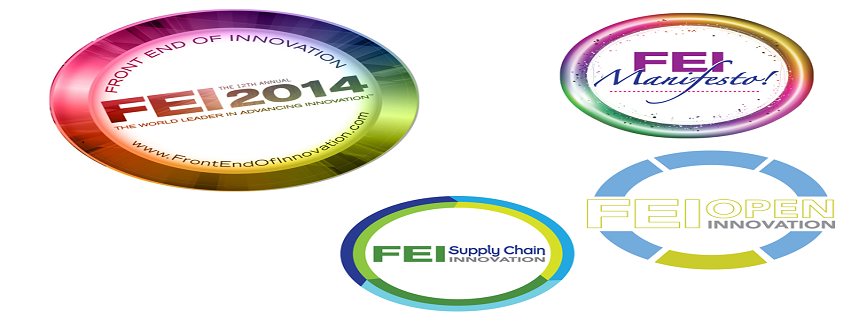At its core, innovation is very much the human endeavor. It is a reflection of our attempt to actualize the best of our potential and to make the most of this spinning bit of rock. It comes as no surprise, then, that one of the major messages of FEI2014 is that companies need to focus on the human element of innovation.
 |
| Download the FEI 2014 Executive Summary highlighting how business are struggling to harness innovation, the unexpected other major themes covered. |
Pay Attention to All of the People
David Jensen talked about the importance of interacting with a wide range of stakeholders to get good perspective on what needs innovating, which includes thinking outside the firm. But, as Tom Graznow and Andrea Klemm pointed out, it's likewise important to pay attention to the innovators within the company to make sure they have what they need to be agile and creative, which includes support at all levels of the organization. In that way, an innovation team can have a small-company feel with big-company support.
People Need to Be Patient
Full of wisdom and insight as usual, Michelle James gave a standing-room-only workshop in which we learned that it is perfectly fine not to know what the outcome will be, and that the best ideas are often several iterations out. But, we need to let go of our anxiety and need for certainty if we are going to let our top ideas shine, and this workshop had a lot of good first steps in that process, if only by showing what happens when we can let go and be brilliant.
Similarly, Scott Millward suggested taking a long-term approach to building talent in a company: "A short-term, outcome focus creates a talent dilemma..." And, the talent is crucial to the success of the company. While Drucker's wisdom suggests that "culture eats strategy for breakfast," Millward points out that "Talent can change what's on the menu!" As such, strategy and talent need time to play in the sandbox together.
Advocate, advocate, advocate
In Heidi Hattendorf's talk, one of the most important points was the fact that companies need to give recognition to their ideators, and to be an advocate by voting with both dollars and the provision of talented people to join an innovation team. Colin Nelson did a deep dive into the nature of innovation advocacy, and reflected upon the specific behaviors that make up a culture of innovation. In addition, it becomes important to make innovation part of the job, which Marla Hetzel and Jennifer Draklellis discussed in detail. Critically, taking the steps to make innovation part of the job description not only provides a means for accountability, it also gives management a framework for supporting the creative endeavors of employees.
We Innovate What We Are
The human side of innovation reflects the chaos and uncertainty of being alive. It is illuminated by dreams of the future, and powered by the drive towards self-actualization. From those lofty endeavors, however, there needs to be a way to concretize the process of changing the world, and that is what gets discussed at the Front End of Innovation every year. In 2014, we learned to respect and honor the fact that innovating is human, and the specific steps we can take to make human innovation work.
Revisit the Front End of Innovation 2014 event.
What innovations will come in 2015?
ABOUT THE AUTHOR
Orin C. Davis is a positive psychology researcher and organizational consultant who focuses on enabling people to do and be their best. His consulting work focuses on maximizing human capital and making workplaces great places to work, and his research focuses on self-actualization, flow, creativity, hypnosis, and mentoring. In addition to being the principal investigator of the Quality of Life Laboratory and the Chief Science Officer of Self Spark, Dr. Davis is an adjunct professor of psychology at Baruch College and a lecturer in Critical and Creative Thinking at UMass Boston. A list of his blog posts can be found here. (@DrOrinDavis)
